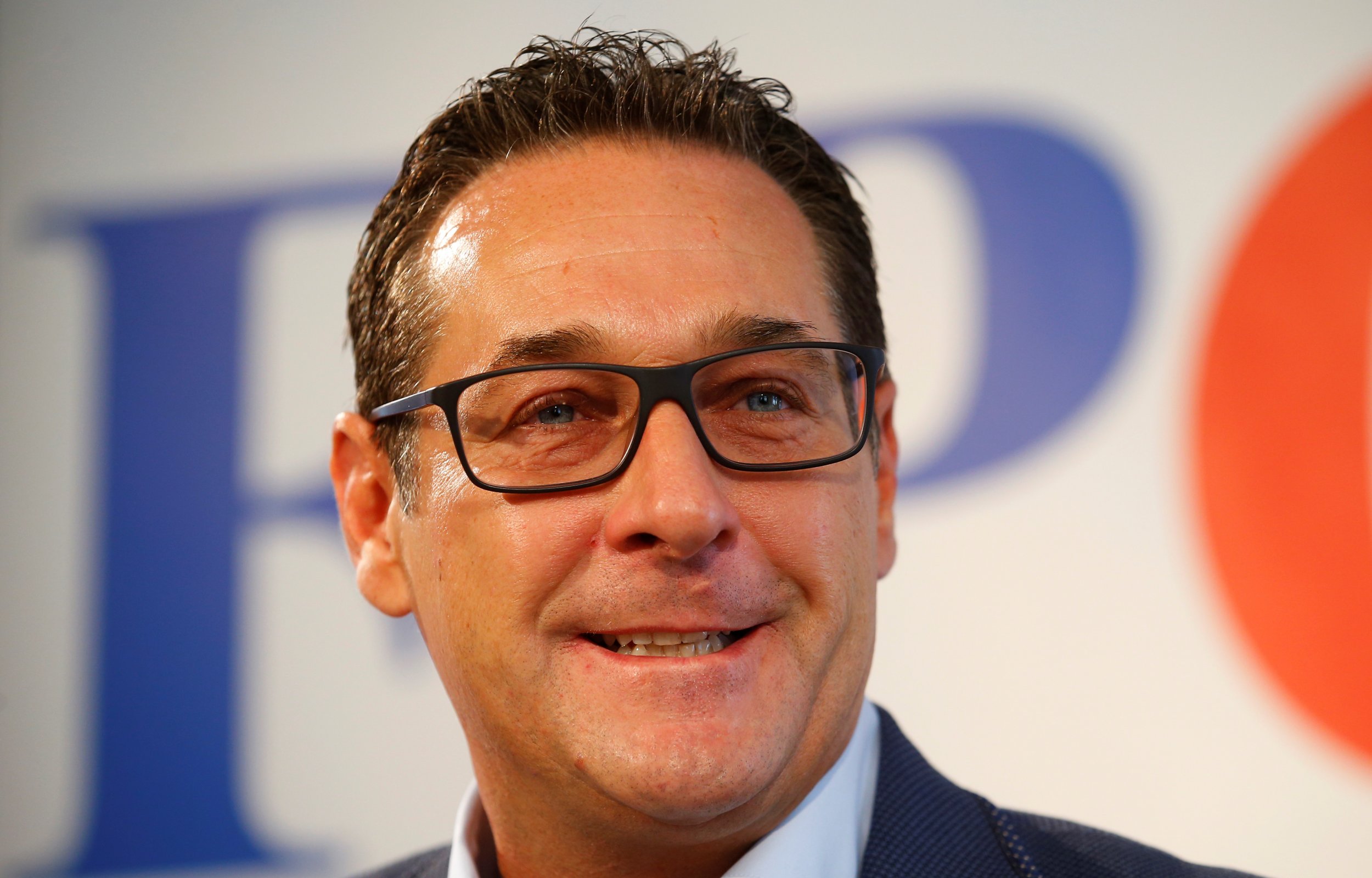
Austria is set to be the next battleground in the fight between mainstream European politicians and far-right populists.
The country's governing grand coalition between the center-left Social Democrats and the center-right People's Party collapsed on Monday, and Social Democrat Chancellor Christian Kern said he expects an early election "in the autumn."
But outside Austria, attention is likely to focus first on the far-right Freedom Party, which joins the two coalition parties in the battle for first to third place in many opinion polls.
Why is Austria having an election now?
Months of disagreements between the governing parties led to the resignation of People's Party leader Reinhold Mitterlehner.
He was succeeded by Sebastian Kurz, the coalition's foreign minister—he is considered a prodigious talent on the rise at just 30 years of age and the People's Party picked him as replacement leader on Sunday. In a meeting with Chancellor Kern on Monday Kurz pushed for a snap poll.
The two parties were supposed to lead the country until September 2018 but the poll now looks likely to happen a year earlier.
What happens next?
In Monday's meeting, the Social Democrats and the People's Party agreed to back a parliamentary motion supporting an early poll. The vote is expected to take place on October 8 or 15.
Opinion polls vary quite widely, but most show each of the Social Democrats, People's Party and Freedom Party with scores in the mid-20s.
The government is chosen by the Austrian president (currently independent green Alexander Van der Bellen), and is normally made up of the strongest party or parties in parliament, since any chancellor must have parliament's backing.
The Freedom Party is likely to jump at the opportunity for a shot at power. In December's presidential election, Europe's moderates watched with baited breath as the hard-right populist party almost took the presidency—Van der Bellen edged out far-right Norbert Hofer in a re-run of the April vote.
In the event, Hofer took just under 47 percent of the vote, meaning Van Der Bellen won.
But the big story of that election was the collapse of the old mainstream parties, none of whom passed the contest's first round, similar to France's recent presidential election when two independent candidates faced off. The Freedom Party will hope its anti-establishment message can once again sway voters tired of the old political options.
What does the Freedom Party want?
One of Europe's more established far-right populist parties, the Freedom Party was founded in 1955, initially drawing support from former National Socialists (Nazis).
Though at times in its history the party has steered closer to the center-right, its current program is hard-right, centring on national identity and opposition to immigration and globalization.
Its program is titled "Austria first," and states that "Austria is not a country of immigration." The party is particularly opposed to Islam. It believes that "cultural Christianity" is the basis of all European values. A government pledge in January to ban Islamic face veils was widely seen as a response to the FPO's growing popularity.
The party is Euroskeptic, and sits in the Europe of Nations and Freedom group in the European parliament alongside Geert Wilders's Dutch Freedom Party and Marine Le Pen's National Front. The mainly far-right grouping is committed to the ultimate destruction of the current European Union.
The party has been in coalition before, most recently from 2000-2005, in a move that led to the EU implementing diplomatic sanctions against Austria based on what advisers considered the party's opposition to democratic principles. A governing role for the far-right in today's even more sensitive and divided climate could lead to dramatic fallout.
Uncommon Knowledge
Newsweek is committed to challenging conventional wisdom and finding connections in the search for common ground.
Newsweek is committed to challenging conventional wisdom and finding connections in the search for common ground.
About the writer
Josh is a staff writer covering Europe, including politics, policy, immigration and more.
To read how Newsweek uses AI as a newsroom tool, Click here.








